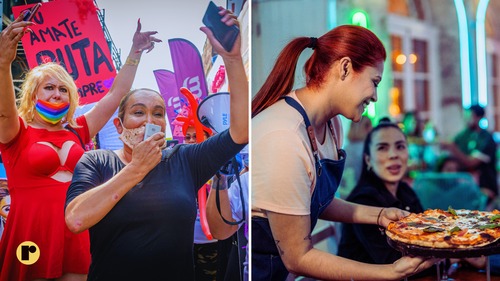In Washington state, known for its progressive vibes, a Spokane classroom became ground zero for controversy. Jacob Knight, a teacher, dared to come out as gay. Formerly hailed as the "young, straight male teacher," Knight's announcement unleashed a torrent of parental complaints and district investigations. The discrimination and stress were so intense, he nearly succumbed to depression and ultimately resigned. Knight's tale is a harsh reality check: even in seemingly accepting places, LGBTQ+ folks can face serious hostility at work. According to a myGwork report, almost half of LGBTQ+ workers worldwide struggle with depression. And that’s just the tip of the iceberg. Knight's story mirrors the complex challenges queer workers face across the U.S., often navigating discrimination, mental health woes, and financial instability. A UCLA Williams Institute report found that LGBTQ+ employees of color are even more likely to face job denials and verbal harassment. Remember the COVID-19 pandemic? The Center for American Progress (CAP) discovered that transgender people were hit hardest by pandemic-related job losses, followed by LGBTQ+ people of color. Earlier this month, Stefanie Newell, a trans woman, shared her story with The New York Times. She moved from Texas to Denver seeking safety, only to find her income barely covering the high cost of living. 2023 saw a record 615 anti-LGBTQ+ bills introduced across the U.S. Texas led the charge with 69 bills, ranging from educational censorship to restrictions on gender-affirming care and public restroom access. For some LGBTQ+ individuals, sex work is more than just a job; it's a way to survive and gain financial independence when facing discrimination. While data is limited, a 2023 California report highlights the harm caused by the war on sex work, particularly for BIPOC individuals. A 2021 "National Transgender Discrimination Survey" found that about 13% of transgender people in the U.S. have been involved in the sex industry, with that number jumping to 44% for Black trans women. A Transgender Health study revealed that 42% of young trans women have engaged in sex work, citing "better pay" and lack of other opportunities due to discrimination. However, the study also noted the mental health toll, with 50% experiencing anxiety and depression. Addison Laczkowski from Cecilia’s Occupational Inclusion Network (COIN) highlights the emotional labor, irregular hours, and financial instability inherent in sex work. A 2015 study found that 47% of trans people of color have experienced mistreatment or discrimination by police, more than double the rate for their white counterparts (18%). In NYC, undocumented trans women face even greater challenges securing stable housing and employment. Transgender women, especially trans women of color, are disproportionately affected by violence. The Human Rights Campaign reported that 2021 was the deadliest year on record for transgender and gender non-conforming people in the U.S., with the majority of victims being Black and Latinx trans women. UpWork reported that freelancers now make up 38% of the U.S. workforce. COVID-19 dramatically changed the freelancing landscape, with a huge boost in full-time freelancers and side gigs. Freelancing can offer LGBTQ+ individuals a safe space to express their creativity and control their work environment. Queer entrepreneur Dana Miranda notes that freelancing can bypass education requirements, resumes, and interviews, allowing people to be hired on their merits. However, freelancing isn't without its downsides. Irregular income, finding new clients, and lack of benefits can lead to financial instability and stress. The hospitality and service industries offer readily available jobs for many LGBTQ+ individuals. A 2022 One Fair Wage study found that nearly one in five hospitality workers identify as LGBTQ+, double the national average. However, these jobs often come with low wages, unpredictable hours, and the potential for customer harassment. Starbucks faced employee walkouts after managers removed Pride merchandise, highlighting the ongoing struggle for LGBTQ+ inclusion. The gig economy, with its promise of quick cash, has become a lifeline for many LGBTQ+ workers. Rideshare and delivery platforms offer adaptable schedules and a seemingly unbiased hiring process. However, gig work often lacks job security, benefits, and worker protections. In 2021, transgender Uber drivers raised concerns about Postmates displaying their legal names, potentially endangering their safety. LGBTQ+ workers, regardless of their profession, continue to advocate for their rights. For Laczkowski, financial stability is key to mental wellbeing. Protect your money, reach out to mental health services, and connect with other workers, they urge.Spokane Teacher's Story: A Stark Reminder
LGBTQ+ Workers: Battling More Than Just Bills
Economic Hardship & The LGBTQ+ Community
Sex Work: A Complex Reality
Trans Women of Color: Facing Added Risks
The Rise of Freelancing & the Gig Economy
Hospitality & Service: A Double-Edged Sword
Gig Work: Flexibility at a Price
Fighting for Fair Treatment

























